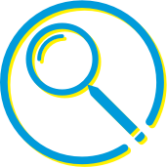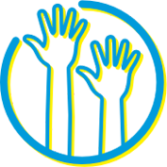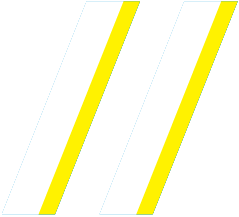August 10, 2020
In our first post in this Getting Hired series, we shared guidance around how to put your best foot forward when it comes to your resume and cover letter. But what happens once you actually land an interview?
First, congratulations! Getting an interview is an accomplishment worth celebrating. But of course, the work doesn’t stop there. Whether you’re interviewing for a position at Elevate or another mission-driven organization, being well-prepared for an interview can significantly increase your chances of advancing to the next round and ultimately, getting the job.
While the interview process might feel drastically different right now in the era of COVID-19 and social-distancing, there are steps you can take to help ensure you make a strong impression — even if you aren’t able to meet with your interviewers in-person.
Below are some recommendations from the Elevate Personnel team, after conducting many virtual interviews over the years.
Be Prepared, and Do Your Homework
It’s important to be in the frame of mind that this is a real, professional interview — even if it’s being conducted virtually while you’re sitting at your kitchen table. Think about what you can do to adopt this mindset, and show up with the same energy, polish, and demeanor that would bring to an in-person interview. A few specific preparation steps we recommend taking include:
- Re-familiarize yourself with the position description, as well as the listed qualifications. The more you understand what they’re looking for, the better you’ll be able to speak to those things and highlight your related skills and accomplishments during your interview.
- If possible, find out how long the interview is scheduled to last, and plan accordingly. This could mean blocking off that time on your calendar, making sure you have access to a quiet space in your home for that window of time without interruption, and mentally preparing for the amount of time you’ll be ‘on.’
- Come up with a handful of anecdotes, stories, or accomplishments that highlight your strengths and skills — especially ones that relate closely to the position. Having these in your back pocket (or even just off-screen, where you can glance at them!) can help keep your mind from going blank if a question catches you off-guard.
- Prepare and practice a short answer to the classic “Tell us about yourself” question. It shouldn’t be too long, nor should it simply be a regurgitation of your resume. Think about how to concisely tell your story in a way that aligns your skills and experience with the position.
- Have a list of questions prepared that you’d like to ask your interviewer(s). This is a great opportunity to gain insight in the culture, the team, and the organization, so don’t let it go to waste!
Consider Your On-Screen Setup
Particularly in this new era when virtual interviews are becoming more common, there are some extra tech considerations we recommend planning for as you’re getting your space set up:
- Take some time in advance to find or set up a backdrop in your home where you’re well lit. Depending on your specific situation and if you’re using an app that offers this option, you might also choose to use a virtual backdrop instead. If you go this route just be sure to test it out ahead of time to make sure it’s working well, and avoid wearing any colors or patterns that may interfere with the backdrop display.
- Have a plan for how you’ll position your computer or laptop, to make sure you’re well-centered in the frame. You may need to adjust the height of your camera by using a laptop stand, a box, or a stack of books. Try out some options with what you have available, and find what works.
- Give yourself time to test your internet connection and sound quality in advance, to make sure things are working properly.
- When it’s time for the interview, close out of as many applications as possible on your computer. You may decide to keep a few windows open for reference, like your resume or a few notes to reference discretely — just be careful that you don’t lose focus or appear distracted.
Make a Personal Connection
We like to say that a good interview is a conversation — one in which no one person is dominating the conversation, but instead there’s a natural exchange. Here are a few tips to help you make a personal connection and keep the conversation going:
- Don’t just recite what’s on your resume. Instead, think of your interview as an opportunity to fill in those gaps and paint a fuller picture, using relevant stories and examples.
- Make sure you have a few key anecdotes up your sleeve that speak to the nature of the position you’re applying for. As you’re preparing these anecdotes ahead of time, try to compile a range of varied examples that showcase different strengths and facets of your personality, so you’re not telling the same story repeatedly.
- This one might go without saying, but don’t ever speak poorly about your previous employers in an interview. (This can be especially true in DC, where you never know who knows who.)
About the Authors:

Katy Kale

Michelle Anthony LaCroix
















